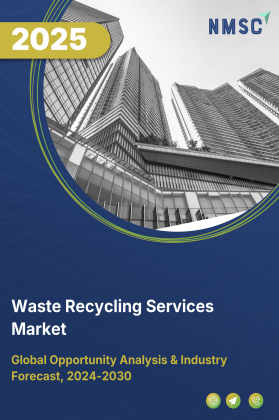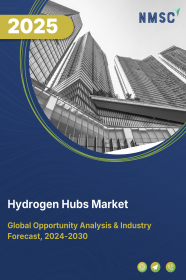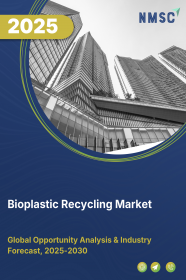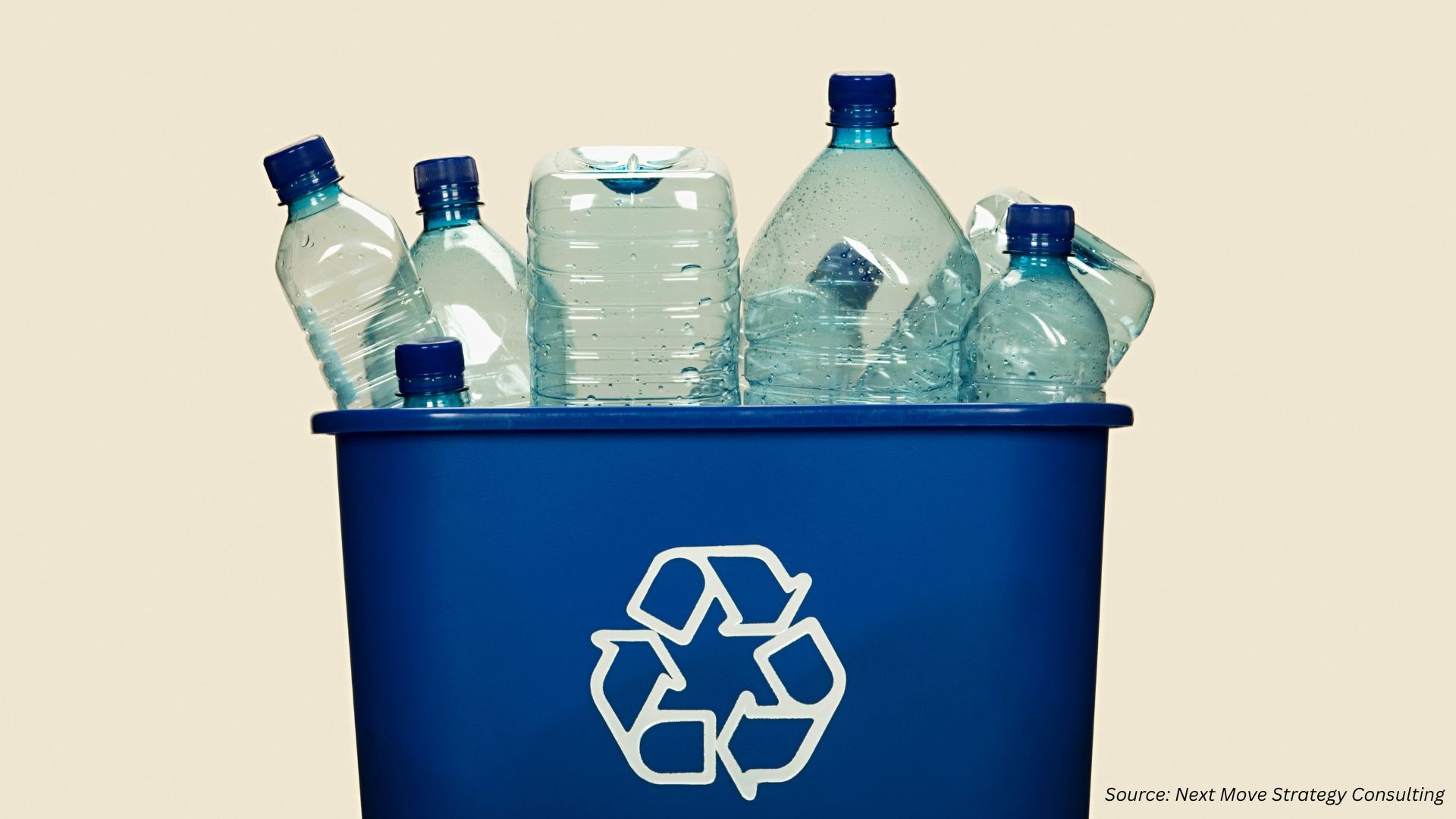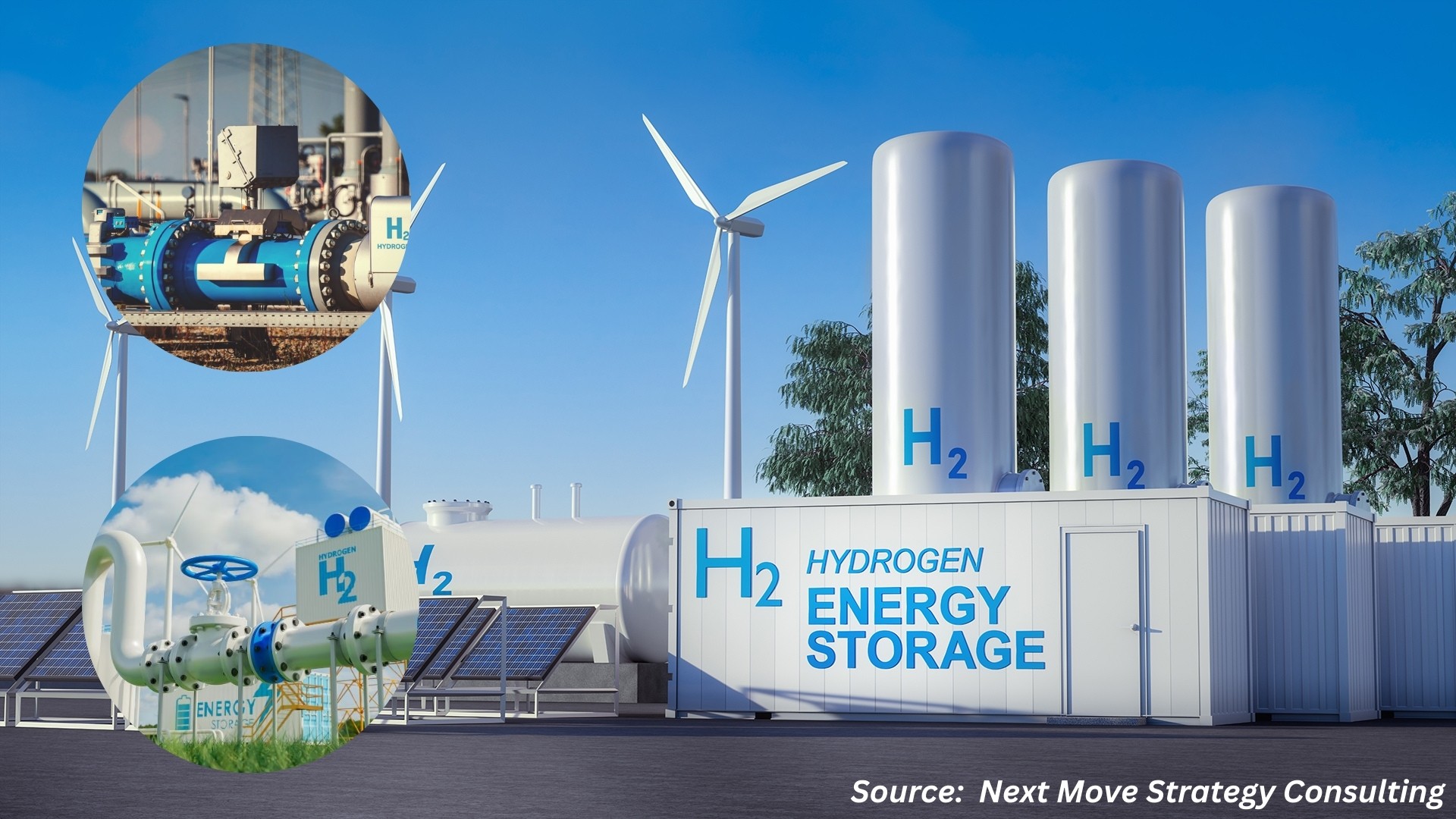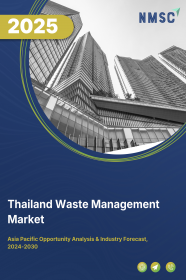
Thailand Waste Management Market by Waste Type (Hazardous Waste, and Non-Hazardous Waste), by Service (Collection, and Disposal), and by Source (Residential or Municipal Waste, Commercial Waste, and Industrial Waste) – Country Opportunity Analysis and Industry Forecast, 2024–2030
Industry: Energy & Power | Publish Date: 10-Oct-2025 | No of Pages: 186 | No. of Tables: 148 | No. of Figures: 105 | Format: PDF | Report Code : EP2745
Industry Overview
Thailand Waste Management Market size was valued at USD 18.28 billion in 2023, and is predicted to reach USD 34.83 billion by 2030, at a CAGR of 8.60% from 2024 to 2030.
The Thailand waste management market involves a wide range of services and activities aimed at managing and mitigating the impact of waste generated by various sectors including residential, commercial, industrial, and healthcare. It includes the collection, transportation, processing, recycling, and disposal of waste materials in a manner that is environmentally responsible and sustainable. The market also involves the development and implementation of technologies and practices that promote waste reduction, resource recovery, and the safe handling of hazardous materials.
Key components of the waste recycling market include waste collection services, recycling facilities, waste-to-energy plants, landfill operations, and environmental consulting services. As awareness of environmental issues grows, the waste recycling market continues to expand, driven by growing population, technological advancements, and increasing public demand for sustainable waste solutions.
National Plastic Ban Policies and Single-Use Plastic Phase-Out Program Boost Recycling Infrastructure
Thailand’s government has enforced a national roadmap to ban single-use plastics and reduce plastic waste by 100% by 2027, driving demand for efficient waste processing and recycling facilities. Key milestones include banning plastic bags, styrofoam containers, and microbeads in cosmetics, supported by regulatory enforcement and public awareness campaigns. These measures are compelling manufacturers and retailers to switch to recyclable or biodegradable alternatives. In response, both public and private stakeholders are accelerating investments in plastic sorting, chemical recycling, and bio-based packaging solutions. The rise in extended producer responsibility (EPR) compliance is further incentivizing the development of high-capacity recovery facilities, creating sustained growth momentum for Thailand’s recycling ecosystem.
Urbanization-led Waste Generation and Tourism Boom Intensify Demand for Integrated Waste Services
Thailand’s accelerating urbanization—coupled with its position as a major global tourism hub—is contributing to rapidly rising volumes of municipal solid waste, particularly in metropolitan areas and coastal regions. Cities like Bangkok, Pattaya, and Phuket are experiencing mounting waste pressure from residential, commercial, and tourism-related activities. This surge is fueling demand for more sophisticated and integrated waste management systems, including real-time tracking, smart segregation, and scalable energy recovery solutions. The government’s Smart City Masterplan and efforts under the Bio-Circular-Green (BCG) economy model are reinforcing urban infrastructure upgrades, encouraging private sector participation in waste collection, recycling, and treatment.
Persistent Informal Sector Dependency and Data Gaps Hinder Market Formalization
Thailand’s waste management sector still heavily depends on informal waste collectors and unregistered recyclers, who handle a significant portion of recyclable materials, particularly plastics and paper. While their role is critical, the lack of integration into formal systems results in inefficiencies, quality control issues, and data gaps in material flow tracking. This fragmented structure makes it difficult for authorities to plan infrastructure, implement EPR policies effectively, and ensure compliance with environmental standards. The absence of reliable waste composition and volume data also undermines market intelligence and investment decisions, slowing progress toward a fully formalized, traceable, and accountable waste management ecosystem.
Waste-to-Energy (WTE) and Biogas Projects Attract Climate Finance and PPP Investments
Thailand’s transition toward renewable energy and low-carbon development is unlocking new opportunities in waste-to-energy (WTE) and biogas infrastructure. National energy plans prioritize waste as a viable feedstock to support energy diversification and reduce landfill dependency. Several new WTE plants and community-level biogas digesters are under development, backed by both local and international investors. Favorable policy mechanisms—such as power purchase agreements (PPAs), carbon credit eligibility, and green financing from development banks—are enabling public-private partnerships to scale these projects. These initiatives not only address waste disposal but also contribute to energy security and emissions reduction targets, positioning WTE as a strategic growth pillar in Thailand’s waste management sector.
Competitive Landscape
The promising key players operating in the Thailand waste management industry includes Veolia Thailand, Suez (Thailand), Better World Green (BWG), WHA Utilities and Power (WHAUP), Wongpanit Waste Separation, Envicco Limited, Waste Management Siam, General Environmental Conservation Public Company Limited (GENCO), Indorama Polyester Industries (Indorama Ventures), SK Tes, RecyGlo Company Pte. Ltd., Trash Lucky, and others.
Thailand Waste Management Market Key Segments
By Waste Type
-
Hazardous Waste
-
Solid Waste
-
Liquid Waste
-
Gaseous Waste
-
-
Non-Hazardous Waste
-
Food
-
Paper and Cardboard
-
Plastic
-
Glass
-
Metal
-
Water
-
E-Waste
-
Others
-
By Service
-
Collection
-
Collection and Transportation
-
Storage and Handling
-
Sorting
-
-
Disposal
-
Open Dumping
-
Incineration/Combustion
-
Landfills
-
Recycling
-
Composting and Anaerobic Digestion
-
By Source
-
Residential or Municipal Waste
-
Commercial Waste
-
Offices and Retail Stores
-
Hospitals
-
Restaurants
-
Other Commercial Sources
-
-
Industrial Waste
-
Manufacturing Waste
-
Construction, Renovation, and Demolition Waste
-
Agriculture Waste
-
Medical Waste
-
Other Industrial Sources
-
Key Players
-
Veolia Thailand
-
Suez (Thailand)
-
Better World Green (BWG)
-
WHA Utilities and Power (WHAUP)
-
Wongpanit Waste Separation
-
Envicco Limited
-
Waste Management Siam
-
General Environmental Conservation Public Company Limited (GENCO)
-
Indorama Polyester Industries (Indorama Ventures)
-
SK Tes
-
RecyGlo Company Pte. Ltd.
-
Trash Lucky
Report Scope And Segmentation
|
Parameters |
Details |
|
Market Size Value in 2023 |
USD 18.28 billion |
|
Revenue Forecast in 2030 |
USD 34.83 billion |
|
Value Growth Rate |
CAGR of 8.60% from 2024 to 2030 |
|
Analysis Period |
2023–2030 |
|
Base Year Considered |
2023 |
|
Forecast Period |
2024–2030 |
|
Market Size Estimation |
Billion (USD) |
|
Growth Factors |
|
|
Companies Profiled |
12 |
|
Customization Scope |
Free customization (equivalent up to 80 working hours of analysts) after purchase. Addition or alteration to country, regional, and segment scope. |
|
Pricing and Purchase Options |
Avail customized purchase options to meet your exact research needs. |

















 Speak to Our Analyst
Speak to Our Analyst



